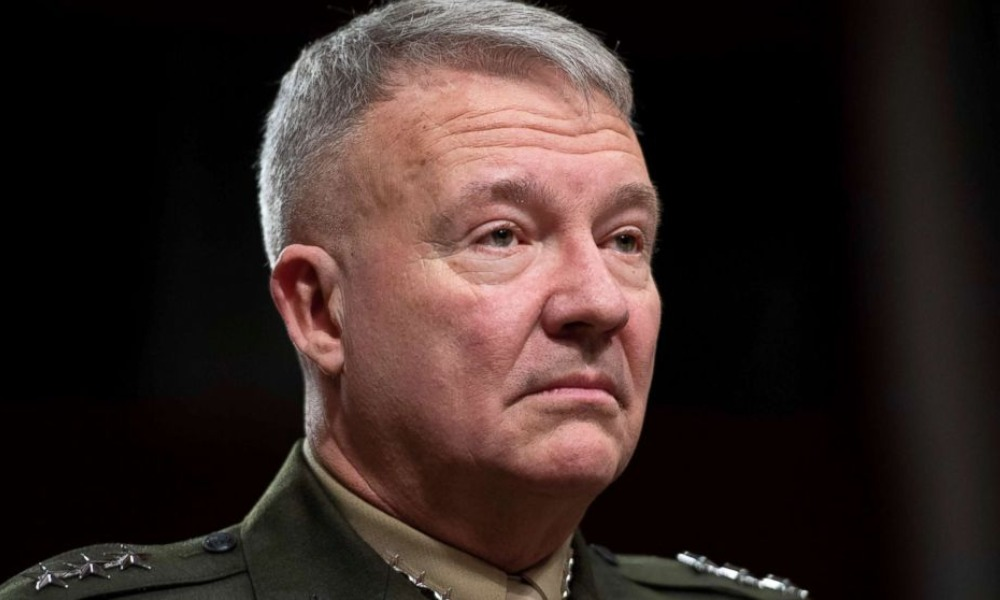CENTCOM chief ‘developing concepts’ to deal with ‘terrorists’

Commander of US Central Command General Kenneth F. McKenzie said on Tuesday he is developing concepts that will preserve the US’s ability to ensure Afghanistan does not again become a safe haven for terrorist attacks against the United States.
He said these concepts will help enhance America’s “ability to strike terrorists and capitalize on partnerships elsewhere in the region.”
He said his headquarters is also working closely with that of U.S Forces Afghanistan and the NATO-led Resolute Support mission “to ensure that we withdraw our forces from Afghanistan in a deliberate synchronized manner that protects our personnel.
He said the U.S will continue to provide security assistance to the Afghan National Defense and Security Forces on a bilateral basis.
“The department [of defense] is working through how we will manage this effort without personnel in Afghanistan, to manage security assistance, we’re also steadfastly supporting ongoing diplomatic efforts to resolve Afghanistan’s long war while holding the Taliban to their part of the February 2020 commitment that they will end their relationship with al-Qaeda and prevent the use of Afghanistan by any group or individual against the security of the United States and its allies,” he said.
McKenzie’s comments coincided with a US Senate Foreign Relation Committee hearing on Tuesday, which saw lawmakers raise concerns about the future of Afghanistan post troop withdrawal.
“How we withdraw and what political arrangement is left in our wake matters deeply,” US Senate Foreign Relations Committee Chairman Bob Menendez said.
“If the Taliban were to come back to power, the reality for Afghanistan’s women and girls, I think, would be devastating.”
Menendez said that he doesn’t “believe under any circumstances that the United States Senate will support assistance for Afghanistan, especially under the World Bank’s program which provides budget support, if the Taliban has taken a governing role that ends civil society advances and rolls back women’s rights.”
But US peace envoy Zalmay Khalilzad said any future support of a government that included the Taliban would be conditional.
“If they do want US assistance, they want international acceptance … those things will be all affected by how they treat their own citizens, first and foremost the women of Afghanistan, children and minorities,” Khalilzad said at the hearing.
“We should all remain concerned that those rights could suffer,” he said.
Asked if the US would keep any leverage to protect those rights once its troops are gone, Khalilzad said aid and other types of diplomatic support “would be not available if they did not respect the human rights of Afghan women or others.”
Senator Jim Risch said the US military withdrawal should proceed only with safeguards for the gains the US has made in Afghanistan.
“I have deep concerns about the administration’s rush for the exits in Afghanistan,” Risch said.
“I hope I’m wrong, but I’m concerned that the administration’s decision may result in a Taliban offensive that topples the government.”
But Khalilzad said that he doesn’t “believe the (Afghan) government is going to collapse or the Taliban is going to take over.”
“The choice that the Afghans face is between a negotiated political settlement or a long war,” he added.
